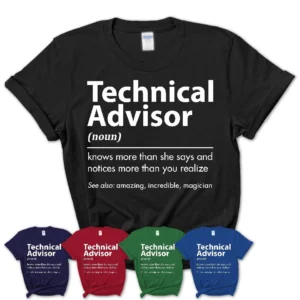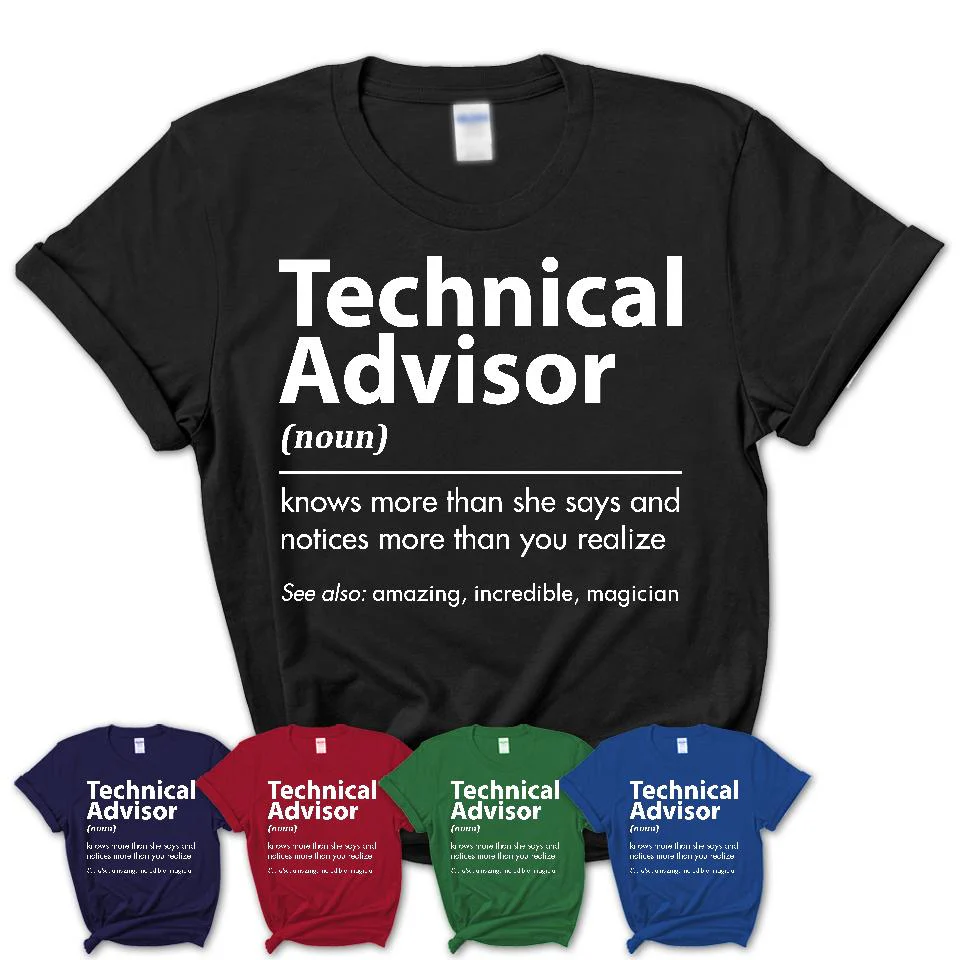Technical Advisor Jobs Free Available 2024
Technical Advisor Jobs are among the most sought-after positions in today’s tech-driven world. Whether it’s helping companies navigate complex technological challenges or guiding them in making informed decisions, Technical Advisors play a crucial role in the success of various industries. But what exactly does a Technical Advisor do, and why is this role so important? This article will explore everything you need to know about Technical Advisor jobs, from the skills required to the potential for career growth.

What is a Technical Advisor?
H2: Defining the Role
A Technical Advisor is a specialist who provides expert advice and guidance on technical matters within a company or organization. This role often involves working closely with clients or internal teams to solve complex problems, implement new technologies, and ensure that technical solutions align with business objectives.
H2: Key Responsibilities
The responsibilities of a Technical Advisor can vary depending on the industry and specific role. However, common tasks include analyzing technical challenges, recommending solutions, overseeing the implementation of new systems, and providing ongoing support and training. They are often the bridge between the technical and business teams, ensuring that both sides understand each other’s needs and limitations.
Skills Required for Technical Advisor Jobs
H2: Technical Expertise
First and foremost, a Technical Advisor must have deep technical knowledge in their field. This could be in areas like software development, network security, or systems engineering. The ability to understand and work with complex technologies is essential for providing accurate and effective advice.
H2: Communication Skills
Technical Advisors must also be excellent communicators. They need to explain complex technical concepts in a way that non-technical stakeholders can understand. This often involves breaking down complicated ideas into simple, actionable steps.
H2: Problem-Solving Abilities
A key part of the Technical Advisor’s role is solving problems. This requires strong analytical skills, creativity, and the ability to think outside the box. Whether it’s troubleshooting a system failure or finding a way to integrate new technology into existing infrastructure, problem-solving is at the heart of what a Technical Advisor does.
H2: Project Management Skills
Many Technical Advisors are also responsible for managing projects, which means they need to be organized and able to coordinate multiple tasks simultaneously. Project management skills help them keep projects on track, within budget, and aligned with business goals.
Education and Qualifications
H2: Relevant Degrees
Most Technical Advisor positions require a bachelor’s degree in a related field, such as Computer Science, Engineering, or Information Technology. Some roles may require a master’s degree, especially in more specialized areas.
H2: Certifications and Training
In addition to formal education, certifications can be crucial for Technical Advisors. Certifications like Cisco’s CCNA, CompTIA Security+, or Microsoft’s Azure certifications can demonstrate a candidate’s expertise and make them more competitive in the job market.
H1: Industries That Employ Technical Advisors
H2: Information Technology (IT)
The IT industry is one of the largest employers of Technical Advisors. Here, they may work on anything from network security to cloud computing, helping companies manage their IT infrastructure effectively.
H2: Engineering and Manufacturing
In engineering and manufacturing, Technical Advisors might be involved in the design and implementation of complex systems or processes. They ensure that new technologies are integrated smoothly and that they meet the required standards and regulations.
H2: Finance and Banking
The finance and banking sectors also rely heavily on Technical Advisors, particularly for cybersecurity and data management. Advisors in this field help financial institutions protect sensitive information and comply with regulatory requirements.
H2: Healthcare and Pharmaceuticals
In healthcare and pharmaceuticals, Technical Advisors may focus on implementing and managing specialized software systems, ensuring that they meet the unique needs of the industry. This could involve anything from electronic health records to drug development software.

Typical Career Path for a Technical Advisor
H2: Entry-Level Positions
Most Technical Advisors start their careers in entry-level technical roles, such as IT support or junior engineering positions. These roles provide the hands-on experience needed to understand the technical challenges they will later advise on.
H2: Mid-Level Positions
As they gain experience, many move into mid-level positions, such as systems analyst or senior engineer roles. These positions offer more responsibility and the opportunity to specialize in a particular area.
H2: Senior-Level Positions
Senior Technical Advisors often oversee large projects or lead teams of other technical professionals. They may also take on more strategic roles, helping to shape the technology direction of their organization.
H2: Potential for Career Growth
There is significant potential for career growth in Technical Advisor roles. With experience, advisors can move into higher-level positions, such as Chief Technology Officer (CTO) or Director of Technology, where they can influence the overall technology strategy of a company.
H1: Challenges Faced by Technical Advisors
H2: Keeping Up with Technology
One of the biggest challenges for Technical Advisors is staying up to date with the latest technological advancements. The tech industry is constantly evolving, and advisors must continually learn and adapt to remain effective.
H2: Balancing Technical and Business Needs
Technical Advisors often find themselves caught between the needs of the business and the limitations of the technology. Finding a solution that satisfies both sides can be challenging and requires a deep understanding of both areas.
H2: Handling Complex Problems
Technical Advisors are often called in to solve the most complex and difficult problems within an organization. This can be stressful, but it also provides an opportunity to make a significant impact.
Benefits of Being a Technical Advisor Jobs
H2: High Demand for Skilled Advisors
As technology becomes increasingly integral to business operations, the demand for skilled Technical Advisors continues to grow. This demand translates into job security and a wide range of opportunities across various industries.
H2: Competitive Salaries
Technical Advisors are typically well-compensated for their expertise. Salaries can vary depending on the industry and location, but they are generally higher than many other technical roles.
H2: Opportunities for Continuous Learning
For those who love learning, being a Technical Advisor offers constant opportunities to acquire new skills and knowledge. Whether it’s mastering a new technology or understanding a new business model, there’s always something new to learn.
How to Become a Technical Advisor Jobs
H2: Building the Right Skill Set
To become a Technical Advisor, start by building a strong foundation in the technical skills required for your chosen industry. This might involve getting a degree, earning certifications, or gaining hands-on experience through internships or entry-level jobs.
H2: Gaining Relevant Experience
Experience is key to becoming a successful Technical Advisor. Look for opportunities to work on projects that will challenge you and help you develop the problem-solving and communication skills that are essential for this role.
H2: Networking and Building Professional Connections
Networking is also important. Attend industry conferences, join professional organizations, and connect with other professionals in your field. These connections can help you learn about new opportunities and stay informed about industry trends.
The Future of Technical Advisor Jobs
H2: Emerging Technologies and Trends
The role of Technical Advisors will continue to evolve as new technologies emerge. Advisors who stay ahead of the curve and learn about these technologies early will be in the best position to take advantage of new opportunities.
H2: Evolving Roles and Responsibilities
As businesses become more reliant on technology, the role of the Technical Advisor is likely to expand. Advisors may find themselves taking on more strategic responsibilities, helping to shape the overall direction of their organizations.
H2: The Impact of AI and Automation
AI and automation are expected to have a significant impact on many industries, and Technical Advisors will play a crucial role in helping businesses navigate these changes. Advisors who understand these technologies and can help implement them effectively will be in high demand.
Conclusion
Technical Advisor jobs offer a rewarding career path for those with the right skills and experience. From solving complex technical problems to guiding businesses through technological change, Technical Advisors play a vital role in today’s economy. Whether you’re just starting your career or looking to take the next step, becoming a Technical Advisor can provide you with the challenges and opportunities you need to succeed.

Technical Advisor Jobs FAQs
H2: What is the average salary of a Technical Advisor?
The average salary of a Technical Advisor can vary widely depending on the industry, location, and level of experience. However, it’s common for Technical Advisors to earn between $70,000 and $120,000 per year, with senior positions potentially earning even more.
H2: How do I start a career as a Technical Advisor?
To start a career as a Technical Advisor, begin by gaining a strong foundation in the technical skills required for your chosen field. This may involve getting a degree, earning certifications, and gaining hands-on experience. Networking and building professional connections can also help you find job opportunities.
H2: What industries need Technical Advisors the most?
Industries that rely heavily on technology, such as Information Technology, Engineering, Finance, and Healthcare, are among the biggest employers of Technical Advisors. However, nearly any industry that uses technology can benefit from the expertise of a Technical Advisor.
H2: Can Technical Advisors work remotely?
Yes, many Technical Advisors have the option to work remotely, especially in industries like IT and finance. However, some roles may require on-site work, particularly if the job involves hands-on tasks or working with specific equipment.
H2: What are the most important certifications for a Technical Advisor?
The most important certifications for a Technical Advisor depend on the industry and specific role. However, some widely recognized certifications include Cisco’s CCNA, CompTIA Security+, and Microsoft’s Azure certifications. These can help demonstrate your expertise and make you more competitive in the job market.
Technical Advisor Jobs Free Available 2024 From pakjob.info The Links Are Given Below!





